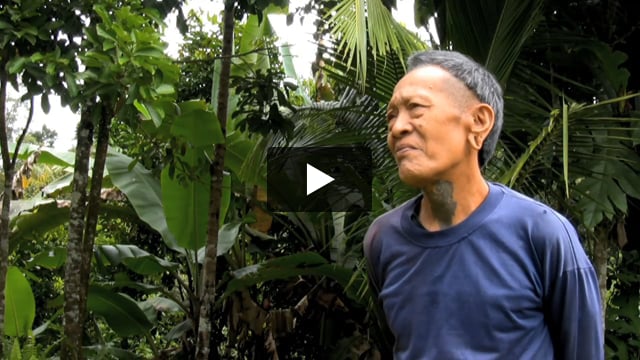Logging and oil palm destroying tribe’s forest home
The hunter-gatherer Penan in Sarawak, in the Malaysian part of Borneo, are battling to stop the destruction of their last remaining forests, and their way of life.
The Penan’s land rights are not recognized, and their forests are being cleared for logging, oil palm plantations and hydroelectric dams, robbing them of their means of survival.
The Malaysian government claims that Sarawak is being logged sustainably – but in fact its forests are being destroyed at one of the fastest rates in the world.

A logger handles trees felled in the Penan’s region. © Andy Rain/Nick Rain/Survival
As the forests are logged, the rivers are silted up, killing the fish. The game is being scared deeper into the few remaining forests, and Penan hunters return home empty-handed.
When the forests start to grow back, it is with thick scrub. The trails the Penan have walked for generations are gone.
The Malaysian logging companies, which include Samling, Interhill and Shin Yang, operate with the full backing of the state government.
Some company workers have threatened the Penan with death if they continue to resist, and others are accused of raping Penan girls and women.
In areas where the big, old trees have all been taken, companies are clearing the remaining forest to make way for oil palm plantations (palm oil is used for biofuel and in many foods and cosmetics).
The plantations spell even greater problems for the Penan than the logging, because once the land is covered in oil palm, there is nothing left for them.
With the loss of their forests, the Penan are being forced into poverty, and are suffering from ill health due to poor diet and polluted water.
Dams
In 2008, a document was leaked on the internet revealing plans by the Sarawak government to build a series of twelve new hydroelectric dams, flooding many Penan and other indigenous villages.

Work on the Murum dam, which is now completed. Waters from the dam drowned Penan forests and villages.
© Survival
The first of these, the Murum dam, was completed in December 2013. Members of the Penan tribe were forced to abandon their blockade against the dam and move into unfinished and sub-standard resettlement sites as rising waters threatened to flood their villages.
The dams are projected to produce far more electricity than Sarawak uses.
With the loss of their land, the Penan fear they will lose their independence. They know that other Penan who were resettled to make way for the existing Bakun dam are unable to hunt or gather, and find it difficult to grow enough food on the small plots of land provided for them. The resettled Penan have also struggled to pay the bills for water and electricity in their government-built homes.
The Penan
The hunter-gatherer Penan live in the rainforests of the interior of Sarawak, in the Malaysian part of the island of Borneo.
Traditionally nomadic, most of the 10-12,000 Penan now live in settled communities, but continue to rely on the forest for their existence. Some still live largely nomadically.
Sarawak was ruled for more than a century as the personal kingdom of the ‘Brooke Rajahs’ after the arrival of Englishman James Brooke in 1839. It was handed over to the British in 1946 and was incorporated into Malaysia in 1963.
The Sarawak state government does not recognize the Penan’s rights to their land. Since the 1970s, it has backed large-scale commercial logging on tribal land across Sarawak.
In 1987, many Penan communities protested against the logging of their land by blockading the roads cut though the forest by the logging companies. More than a hundred Penan were arrested.
The Penan have kept up their resistance, and continue to mount blockades against the companies. Some have managed to prevent the companies from entering their land, but others have seen much of their forest devastated.

A Penan man collects forest fruit. © Andy Rain/Nick Rain/Survival
Where all of the valuable trees have been cut down, the companies have started to remove the forests completely in order to establish oil palm plantations.
The Sarawak government also plans to build new hydroelectric dams, flooding many villages belonging to Penan and other indigenous people.
How does Survival help?
Survival is urging the Malaysian authorities to recognize the Penan’s rights to their land, and to halt all logging, oil palm plantations, dam construction and other development on their land without their consent.
How do they live?
Unlike the other indigenous peoples of Sarawak, who grow most of their food, the Penan are hunter-gatherers.
Famous for the silent blowpipes and poison darts they use for hunting, the Penan particularly prize wild pigs.
They also hunt deer and smaller animals, and catch fish in the many rivers that flow through their land.
Sago is the Penan’s traditional staple food, and comes from the core of a small palm tree.
The Penan process it by trampling on it, and leave it in the sun to dry into a powder. They also gather ferns and fruit from the forest.
Many of the more settled Penan have started to plant rice and other crops but continue to rely on the forest for most of their needs.
In areas where the forests have been cleared for logging and oil palm plantations, it is becoming almost impossible for the Penan to sustain themselves.
Act now to support the Penan
Join the mailing list
More than one hundred and fifty million men, women and children in over sixty countries live in tribal societies. Find out more about them and the struggles they’re facing: sign up to our mailing list for occasional updates.
News from the Penan
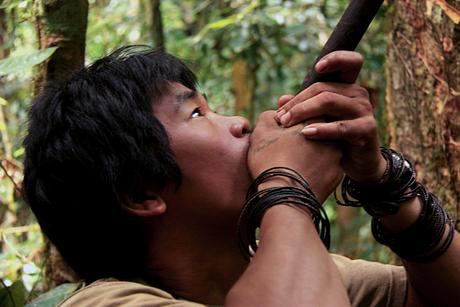
Success for Sarawak tribes as dam shelved
Success for Sarawak tribes as dam that would have evicted 20,000 has been shelved.
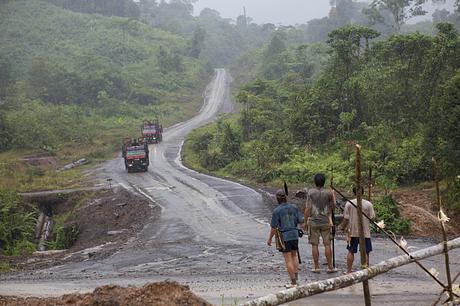
New Penan blockade against oil palm plantation
Forty Penan families blockade oil palm plantation to stop company workers trespassing on their land.
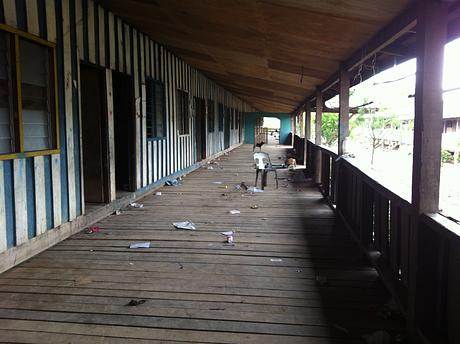
Bullying tactics drive Penan to abandon dam blockade
Bullying tactics drive Penan to abandon protest against Murum dam. Rising waters and threats to dismantle bridges force move.
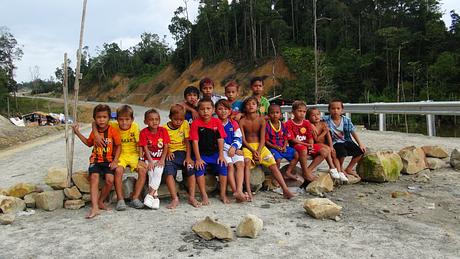
Penan blockade continues, despite arrests
The Penan's blockade of the Murum dam is still continuing, despite the arrest of ten Penan, including two children.
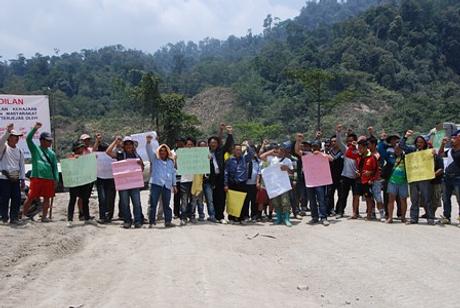
Police arrest Penan as tribe blockades dam site
Tensions are mounting at the Murum dam in Sarawak where members of the Penan tribe are protesting
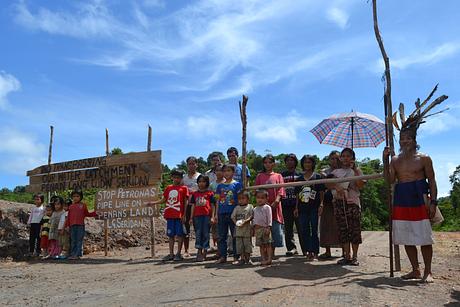
Penan protest against pipeline, logging and dam
Penan from the Long Seridan region have mounted a blockade to protest against the building of a gas pipeline.

